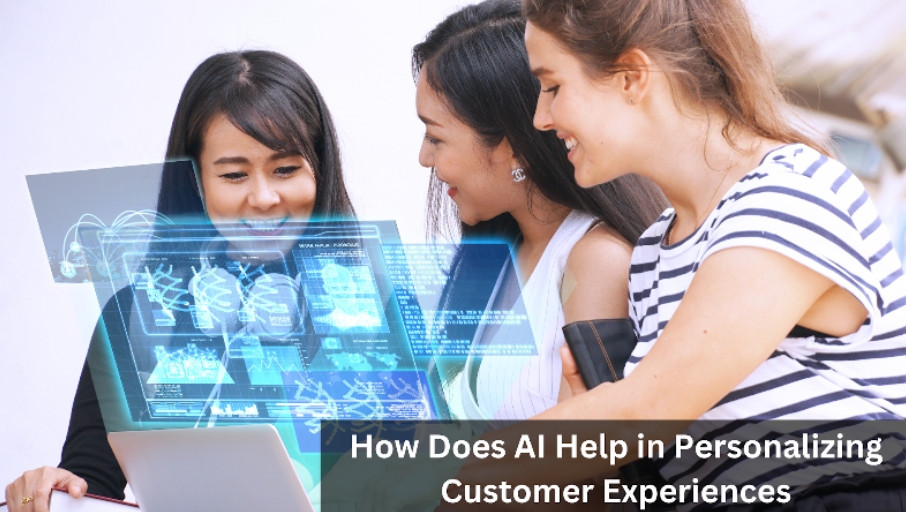Have you ever wondered how some brands seem to know exactly what you need before you even ask? Customers expect brands to anticipate their preferences and deliver tailored experiences. Generic marketing no longer works personalization is key to engagement and satisfaction.
- The Evolution of Customer Personalization
- AI Techniques That Enhance Customer Personalization
- Machine Learning for Smart Recommendations
- Natural Language Processing (NLP) for Better Interactions
- Predictive Analytics for Customer Behavior Insights
- AI Applications in Personalizing Customer Experiences
- Personalized Product Recommendations
- Dynamic Content Personalization
- AI Chatbots for Customer Support
- Voice Search Optimization
- AI in Email Marketing: Improving Deliverability & Engagement
- Challenges & Best Practices in AI-Driven Personalization
- Data Privacy and Compliance
- Balancing AI Automation with Human Touch
- Optimizing AI for Continuous Learning
- Future Trends in AI & Customer Personalization
- Hyper-Personalization at Scale
- AI-Powered Virtual Shopping Assistants
- AI in Augmented Reality (AR) & Virtual Reality (VR)
- The Future is AI-Driven Personalization
- FAQs
AI plays a transformative role by analyzing massive datasets, predicting customer needs, and enabling real-time personalization. From recommendation engines and chatbots to predictive analytics and automated emails, AI is reshaping customer interactions.
This blog explores how AI enhances personalization, best practices for implementation, and future trends shaping AI-driven experiences.
The Evolution of Customer Personalization
Traditional Methods of Personalization
Before AI, businesses relied on basic segmentation techniques to personalize customer experiences. Strategies such as demographic-based marketing, manual product recommendations, and email segmentation were widely used.
While these methods offered some level of personalization, they lacked scalability and real-time adaptability. Businesses struggled to create truly individualized customer interactions, leading to lower engagement and conversion rates.
How AI Transformed Personalization
AI-driven personalization shifts from static segmentation to real-time, data-driven customization. Instead of grouping customers into broad categories, AI identifies individual preferences and tailors experiences accordingly.
This transformation allows businesses to deliver dynamic, real-time recommendations based on user behavior, analyze multiple touchpoints such as websites, mobile platforms, and social media for deeper insights, and automate personalization at scale to ensure consistency across all platforms. AI also enhances digital marketing efforts by using email deliverability tools, ensuring that personalized messages reach the right audience without being flagged as spam.
By leveraging AI, companies can now offer unique, meaningful experiences that improve customer satisfaction and loyalty.
AI Techniques That Enhance Customer Personalization
Machine Learning for Smart Recommendations
Machine learning (ML) enables businesses to understand customer behavior and offer highly relevant recommendations. AI models analyze browsing history, past purchases, and user engagement to anticipate future preferences.
With ML, businesses can provide personalized product suggestions, optimize content, and enhance customer interactions without manual intervention.
Natural Language Processing (NLP) for Better Interactions
Natural Language Processing (NLP) helps businesses communicate more effectively with customers. AI-driven chatbots and virtual assistants use NLP to understand customer queries and respond with relevant, human-like interactions.
NLP also improves sentiment analysis, allowing businesses to gauge customer emotions and adjust responses accordingly. This ensures that customers feel heard and valued in real-time interactions.
Predictive Analytics for Customer Behavior Insights
Predictive analytics leverages historical data and AI algorithms to anticipate customer needs before they arise. AI analyzes patterns and trends to forecast future behavior, allowing businesses to proactively engage customers with relevant offers and content.
By using predictive analytics, brands can enhance customer engagement, reduce churn, and improve marketing ROI through data-driven decision-making.
AI Applications in Personalizing Customer Experiences
Personalized Product Recommendations
AI enables businesses to analyze user behavior, purchase history, and engagement data to provide real-time product recommendations. This helps customers discover relevant products effortlessly, leading to higher conversion rates and increased revenue.
Dynamic Content Personalization
These AI-empowered websites and apps will give the content to the user in real time based on their preferences. AI can create personalized homepages, customize email content, and trigger unique push alert notifications in real-time, ensuring every interaction is engaging and unique.
AI Chatbots for Customer Support
These AI-driven chatbots are capable of providing an instant personalized response to consumer queries. They minimize waiting times, enhance response efficiency, and provide customized solutions based on customer histories and preferences.
Voice Search Optimization
With the rise of voice assistants, AI helps businesses optimize their content for voice search queries. AI-driven voice search technology understands natural language patterns, making interactions more intuitive and user-friendly.
AI in Email Marketing: Improving Deliverability & Engagement
AI-Driven Email Personalization
Artificial intelligence magnifies email marketing deliverability by improving subject lines, email content, and send times based on user behavior. Emails are thus more relevant and interesting, hence boosting open rates and conversions.
AI analyzes the responses of recipients, allowing businesses to adjust email campaigns to individual tastes and preferences, hence providing more personalized and direct communication to customers.
Boosting Email Deliverability with AI
AI plays an extremely important role in email deliverability monitoring by aiding in the prevention of emails from being marked as spam. AI algorithms analyze factors such as:
- User engagement (open rates, click-through rates)
- Spam filter cues (avoiding blacklisted words and content)
- Email authentication methods (SPF, DKIM, DMARC)
With the aid of AI, businesses can monitor the deliverability of emails as well as confirm that they reach the inbox, thus improving engagement odds. AI also offers real-time testing of deliverability to track delivery problems before campaigns go live.
AI also helps better determine when emails should land in the inbox to ensure optimal times of engagement for recipients, thus increasing campaign success rates.
Challenges & Best Practices in AI-Driven Personalization
Data Privacy and Compliance
AI-driven personalization, with its dependence on customer data, raises issues with privacy and security. Companies have to comply with the GDPR, CCPA, etc., to build customer trust.
Transparency is key brands should openly and unemotionally talk about the management of customer data and ensure it will not be subject to insecure handling.
Balancing AI Automation with Human Touch
Although AI increases efficiency in every aspect, it can turn interactions into robotic ones if over-automation is deployed. Businesses must blend AI insight with human customer support for genuine engagement with customers.
For instance, AI can handle initial interactions, while human agents step in for complex or emotionally sensitive queries.
Optimizing AI for Continuous Learning
Most AI applications will only maintain their relevance through constant updates and optimization activities. Businesses need to:
- Review customer feedback to fine-tune their AI models.
- Test AI-driven recommendations for relevance and accuracy constantly.
- Pick up on metrics of AI performance to enhance customer interactions constantly.
Continuous fine-tuning of AI guarantees businesses that customer experiences are of the highest personalized level.
Future Trends in AI & Customer Personalization
Hyper-Personalization at Scale
While businesses can grant hyper-personalized experiences in real-time, AI will help in the personalization of every interaction, such as product recommendation, emailing, and customer service responses.
AI-Powered Virtual Shopping Assistants
Using AI technologies, virtual assistants will help customers navigate stores online for products and personalized recommendations in real-time.
AI in Augmented Reality (AR) & Virtual Reality (VR)
The concept of AI will augment the entire experience of augmented reality and virtual reality with virtual environments customized with individual choices.
The Future is AI-Driven Personalization
AI is reshaping customer personalization by supplying businesses with insights from data, predicting possible behaviors, and automating interactions with unprecedented precision. Using AI-led strategies, brands can empower hyper-personalized experiences, enhance email marketing, and improve customer retention.
As AI technology continues to develop, companies using AI strategies will have a competitive edge. The question remains, has your company primed itself to understand what AI can do and develop data-driven meaningful customer experiences? The time to do so is now!
FAQs
How is AI used in customer experience?
AI enhances customer support by using chatbots, ticket automation, and sentiment analysis to make the support process faster, enabling 24/7 availability, and improving issue resolution, which in turn improves customer satisfaction and boosts overall efficiency.
What is one way AI improves the customer experience?
AI improves the customer experience by personalizing interactions, such as product recommendations based on what someone’s been looking at, relevant content, and deeper engagement through predictive insights and automated responses.
How does AI help customer support?
AI helps in the organization of customer support using chatbots, ticket automation, and sentiment analysis, enabling faster response times, 24/7 availability, improved issue resolution, increased customer satisfaction, and efficiency.

















